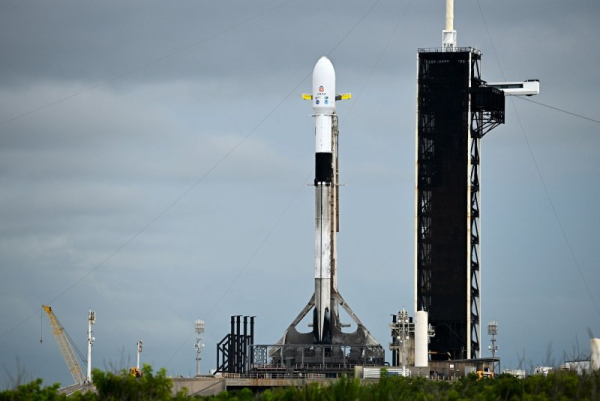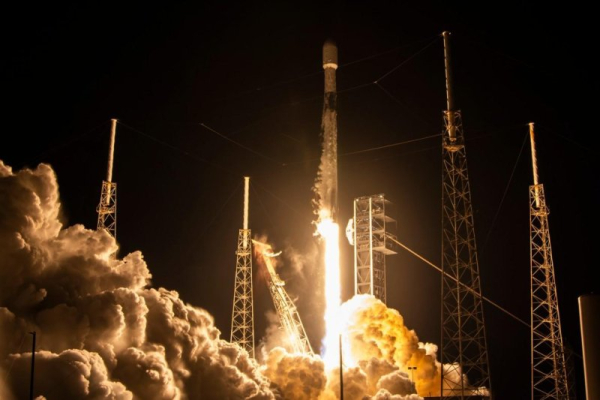
NASA officials are poised to launch a mission designed to protect Earth's technology from the potentially destructive effects of solar storms.
NASA and SpaceX officials have cleared the Interstellar Mapping and Acceleration Probe for launch Wednesday morning after Tuesday's launch was delayed due to weather conditions.
The rocket's payload includes NASA's Carruthers Geocorona Observatory, which will monitor ultraviolet radiation from Earth's geocorona.
According to the European Space Agency, the geocorona is a cloud of hydrogen atoms that extends through the Earth's atmosphere to the Moon and beyond.
The Lagrange spacecraft, a space weather mission operated by the National Oceanographic and Atmospheric Administration, will also launch into space aboard a Falcon 9 rocket.
The National Oceanic and Atmospheric Administration's (NOAA) SWFO-L1 satellite will monitor solar activity in space weather.
NOAA Director Clinton Wallace told WFOL that the IMAP mission will send a satellite into space that will act as “a buoy in space, a million miles from Earth, that will protect all of our technology here on Earth from the harmful effects of solar storms.”
Wallace added that solar storms and other space events could disable satellites and affect power grids and other systems on Earth.
“It could even impact the global positioning systems that our farmers rely on to plant crops and that pilots rely on to navigate around the world,” he explained.
According to Spaceflight Now, the IMAP probe is equipped with 10 scientific instruments that will allow it to map the Sun's heliosphere and study space weather.
Scientists and engineers tested the probe at NASA's Marshall Space Flight Center in Huntsville, Alabama, WZDX reports.
The mission is scheduled to launch at 7:30 a.m. ET from Kennedy Space Center's Launch Pad 39A on the Atlantic coast of central Florida.
The SpaceX Falcon 9 rocket will launch the IMAP probe into space along with two other spacecraft.
According to Accuweather, the local weather forecast calls for partly cloudy skies, possible thunderstorms and a high of 91 degrees on Wednesday.
Sourse: www.upi.com





